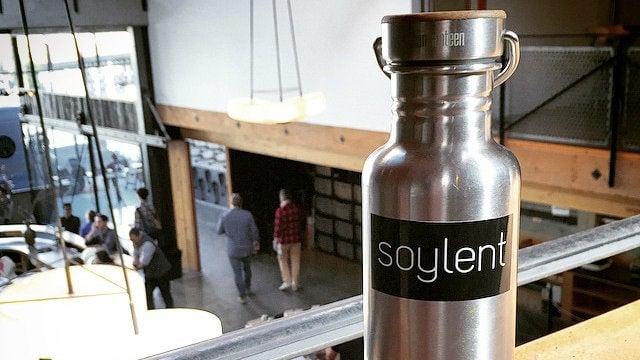Soylent says food intolerance—not poisoning—is why its products are making people sick
Silicon Valley fell hard for the food tech startup Soylent. The company’s meal replacements promised to boost productivity and move engineers and entrepreneurs one step closer to machine-powered efficiency. But recent reports of sick Soylent customers are a stark reminder that, no matter how hard we try, the human body will never operate as seamlessly as a robot.


Silicon Valley fell hard for the food tech startup Soylent. The company’s meal replacements promised to boost productivity and move engineers and entrepreneurs one step closer to machine-powered efficiency. But recent reports of sick Soylent customers are a stark reminder that, no matter how hard we try, the human body will never operate as seamlessly as a robot.
Earlier this month, several customers complained on Soylent’s health forum of adverse reactions to its food bar, leading to vomiting and diarrhea. On Oct. 12, the company announced that it was halting sales of the bars “as a precautionary measure.” It has since linked sick customers to two products, its food bars and the latest version of its cornerstone product, Powder 1.6, which share similar ingredients.
The company posted an update on its website late this week. It said that all tests “came back negative for food pathogens, toxins or outside contamination,” and concluded that food intolerance—not poisoning—is what likely caused the adverse reactions. A food intolerance is typically less severe than a food allergy, and tends to involve digestive problems. The Mayo Clinic points out that people with food intolerances can sometimes consume smaller amounts of any given food without any trouble—which raises the question of whether the intolerances could have been caused by consuming too much Soylent.
The company pointed out that a small number of customers experienced sickness, while others who ate from the same batch of bars did not experience similar symptoms. Soylent went on to note that it is removing the likely ingredients that caused sickness, though it didn’t identify what those were. It plans to put the reformulated bars back on the market by the first quarter of 2017, and said that it would share its findings with the US Food and Drug Administration.
It’s unclear whether this, along with other recent setbacks, will affect the company’s cult following. Soylent temporarily ceased shipment of its Coffiest drink in September because the product didn’t have the advertised levels of vitamins A and C, and delayed shipment of its 2.0 Soylent drink earlier in late September after discovering mold in some of its bottles.
In 2015, the New York Times reported that Soylent, founded by Rob Rhinehart in 2013 with much fanfare, had already logged more than six million orders. Soylent has raised more than $20 million by convincing investors that enough Americans would prefer to consume a bland liquid over a flavorful meal—effectively choosing efficiency over epicurism.
Unless another competitor comes in with a more appealing meal replacement in short order, Soylent’s recent troubles are unlikely to dissuade its customers from their quest for superhuman productivity. If anything, those unaffected by illness may well take their good health as further confirmation of their ability to put mind over matter.
Image by Aaron Muszalski on Flickr, licensed under CC-BY-2.0.